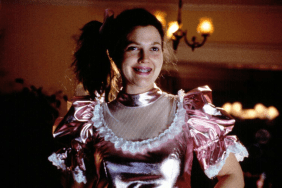
While there’s quite a bit of repeat from Toronto and other festivals, we have yet to see any of the film festival’s “big movies” including the World Premiere of David Fincher’s Gone Girl–which seems to be screening for everyone except us before the film’s actual premiere on Friday night, September 26, despite opening in just one week. Another big draw is sure to be Paul Thomas Anderson’s adaptation of Inherent Vice (Warner Bros. – Dec. 12), the festival’s Centerpiece premiering on October 4, as well as the Closing Night Gala of Alejandro Innaritu’s Birdman, which has already played at Venice and Telluride but will start picking up steam before its limited release on October 17.
So far, I’ve only seen six new movies at this year’s NYFF, and they all pale in comparison to Damien Chazelle’s Whiplash, which on second viewing is still the most perfectly-rendered film I’ve seen in a long time and certainly this year. I can’t wait to write more about this movie, but now let’s get to some of the movies that we haven’t discussed yet.
As you may have noticed, I like to go from best to worst

One of the best movies I’ve seen this year and one that I first saw during my brief foray to Berlin for this year’s Berlinale, Yann Demange’s dramatic thriller set during the early days of Britain’s involvement in the Northern Ireland conflict in Belfast showcases another fantastic performance by Jack O’Connell (Starred Up), but really, it’s one of the more accessible looks at this conflict in terms of showing how things escalated and how the British army became the public enemies to all of the warring factions in the area. Demange is absolutely one of the great new filmmakers to watch in the coming year with his fantastic visual style and ability to get strong performances from his entire cast, but also being able to create real tension as O’Connell’s Gary Hook fights for his life as he’s caught behind enemy lines. The film is just as riveting on second viewing and it does better than many other movies at explaining the different factions and why they’re fighting, although it does get a little confusing as we learn about some of the treachery and double-dealing happening between them. O’Connell gives another great performance but it’s a showcase for a lot of great Irish talent working from a fantastic script by playwright Gregory Burke. I’m hoping Roadside Attractions will give this some sort of awards-qualifying run in New York and Los Angeles so that I can include it in my Top 25 at the end of the year.
Rating: 9/10

I’m not sure if I’ve said much about this new movie from Mia Hansen-Love (Goodbye First Love) out of TIFF, maybe because I didn’t get a chance to watch the whole thing but this terrific film co-written with (and reportedly based on the life of) Mia’s brother Sven takes a look at a group of young DJs trying to make it in the world of electronic dance music as it was breaking big in France during the early 90s.
The star of the film is Félix de Givry as Paul, a young and impressionable music lover who slowly makes his way through the DJ world, playing parties with his friends under the name “Cheers” (yes, exacty like the TV show). Hansen-Love’s real discovery though is ultra-cute Belgian actress Pauline Etienne as Paul’s girlfriend Louise, a role that brings so much more to the story playing a big factor in inspiring Paul’s music. The film covers almost 20 years in Paul’s life (although he doesn’t visually age much) showing how times change around him, and while he does seem somewhat spoiled, a depiction of how entitled young people in the music scene acted even 20 years back, it’s generally enjoyable to watch his rise.
The one thing that didn’t work for me was the presence of Greta Gerwig as one of Paul’s early girlfriends while he’s still in school. She disappears from the movie too quickly to matter and her return on Paul’s first visit to New York City (complete with a hipster PS1 party) with scenes that don’t show off how talented Gerwig can be.
What might be as much a draw for the film is how France’s most famous EDM export, Grammy winners Daft Punk, are constantly making appearances, having been around at the time when Paul and Cheers were first doing their thing. At first, they just show up as background characters, showing up sans space helmets at a costume party no less, but their music is constantly a part of the dance music-driven soundtrack and they’re even somewhat of a running joke throughout the film. (At the height of their fame in 2013, the duo have just as much trouble getting into a club as they do in their early days.)
Picked up by Broad Green Pictures just last week, the film reminds me of Olivier Assayas’ amazing Something in the Air, another similar semi-autobiographical film that captures the spirit of artistic French youth, only twenty years earlier. Not everyone is going to enjoy the movie as much as those who are familiar with the music and the scene, but I thought it was an ambitious look at a very specific time that worked better than other similar attempts.
Rating: 7.5/10

Alex Ross Perry’s second feature after the little-seen The Color Wheel features Jason Schwartzman in what might be one of his funniest roles to date, playing author Philip Lewis Friedman, a bitter and angry New Yorker who uses his newfound success when his first book is published that he immediately uses it to burn all the bridges in his relationships. After his second book is released, Philip decides to go live with one of his idols, a well-regarded author named Ike Zimmerman, played by Jonathan Pryce, leaving his photographer girlfriend Ashley (Elisabeth Moss) to create a new life for herself without him.
Every word that comes out of Philip’s mouth just gets him deeper and deeper into trouble with those around him, but it’s the type of character and words that can’t help but make you laugh, knowing there are really people this deluded in the world of fiction writing. Schwartzman is great in this type of role and he’s really in top form leading a film that reminded me at times of Noah Baumbach’s “The Squid and the Whale” and at others of Wes Anderson’s “The Royal Tenenbaums,” being that it shows what narcissistic and self-indulged people authors can be.
Some might see this as a thematic follow-up to Anderson’s “Rushmore,” which introduced Schwartzman, showing what that character may be like 15 years later, although Perry doesn’t have the knack for visual aesthetics of Anderson going more for a DIY handheld look more like the Duplass Brothers. (Some of the camerawork is pretty bad and that often hurts some of the scenes.)
The film uses an interesting storytelling device that changes the perspective from Philip to Ashley to Ike, and unfortunately when Schwartzman and Moss are not on screen and the film has moved past Philip and Ashley, it’s infinitely less interesting. On the other hand, Perry’s screenplay is fantastic including a clever use of narration that gets into the character’s heads when the focus switches to each one.
I was also a little disappointed by how Krysten Ritter was underused as well, although eventually we get back to Philip trying to deal with Academia and we’re back to the hilariously insensitive dialogue that made the first part of the movie so much fun. (The film also has a small role for The Color Wheel‘s Kate Lynn Sheil who’s also fantastic in the upcoming The Heart Machine that’s not playing at the NY Film Festival.)
Rating: 7.5/10
The Blue Room (Sundance Selects – Oct. 3) – NYFF Premiere Monday, Sept. 29 at 9pm (2nd screening Sept. 30 at 9pm)
French actor Matthieu Amalric makes a rare return behind the camera as he adapts Georges Simenon’s novel about a love affair and the repercussions that arrive from two lovers who want to spend the rest of their lives together by whatever means necessary. It’s a movie that I can appreciate it for its craft in terms of the writing and filmmaking, but it’s an odd choice for a movie playing at the same festival as David Fincher’s Gone Girl as there is a similar sense of mystery about what happened to one of the characters. I don’t have a lot to say about the film, because Amalric is as great as ever and he has a number of truly sexy scenes with his co-star Lea Drucker, but there’s just something missing in terms of emotionally investing the viewer in order to keep them interested. It’s a surprisingly short movie at just 74 minutes, which makes it seem more worthy of a TV movie than a feature film, although Amalric is good with setting up shots and getting great performances while pulling double duties (and his screenplay is quite good). The results are a decent erotic thriller (of sorts), but like his recent appearance in Roman Polanski’s adaptation of Venus in Fur, it’s not a movie that leaves much of a lasting impact when you’re not watching it.
Rating: 7/10

This selection by Germany for the Oscar Foreign Language category is the latest from Dominik Graf, whose work I really wasn’t particularly familiar with. It’s an 18th Century period piece set around the time of the French Revolution but mostly taking place among the rich bourgeoisie of a German burg where two sisters from a poor family try to find their way to marrying into wealth while staving off their feelings for a young and poor poet name Friedrich (Florian Stetter) who they both fall for. At first, the film seems to be more about Henriette Confurius’ Charlotte, who goes to visit with a family relative to try to be trained in proper etiquette. As her aunt tries to find her a proper mate, she meets Friedrich as he’s looking for directions, and her sister Caroline (Hannah Herzsprung), who has already married into wealth, wants to help her sister be with the man she loves, but she also has feelings for Friedrich so they device a plan so that the three of them can be together.
I don’t know enough German to know the translation for the French “menage a trois” but anyone hoping for anything that sexy will be severely disappointed in this film that reminds me of the Danish Oscar nominee A Royal Affair, which I thought was just as overrated. Meanwhile, I’ve already seen a much better costume drama this year in Amma Asante’s Belle, starring the amazing Gugu Mbatha-Raw, a film which offered higher stakes and more resonance than this film about the wealthy and entitled German upper class.
To make matters worse, Graf felt the need to take up nearly three hours to tell this story, which could easily have been pruned down to two hours since there’s so much extraneous baggage that’s unnecessary to telling this story including a lot of scenes of characters reading letters they’ve written to each other–there’s a lot of correspondence in the story–that makes this almost as aggravating as David Cronenberg’s A Dangerous Method.
I said it in my TIFF wrap-up piece and I’ll say it again now that I’ve seen Beloved Sisters that I feel that Christian Petzold’s Phoenix (picked up by Sundance Selects) is a far superior film and much more deserving of Germany’s selection for Oscar consideration. Beloved Sisters is such a forgettable non-event I don’t feel Germany will be get into the Oscar nominations this year at all.
Rating: 6/10

I know that a lot of cinephiles (translation: film snobs) love the Dardenne brothers as do their home country of Belgium who have put their latest up for their Oscar consideration film, but man, this movie just did not do anything for me at all. And that’s even with the Dardennes teaming with the always-wonderful Marion Cotillard, an Oscar winner in her own right and an actress who I can literally watch in anything. Or so I thought. Here, she plays Sandra, a wife and mother who has previously suffered from depression who is about to lose her job at a small company trying to downsize. In order to keep her job, she must convince her coworkers to vote to keep her rather than accepting a lucrative bonus being paid to them by the bosses.
And so she literally spends wait for it two days and one night walking around to different locations meeting up with co-workers trying to convince them to give up their 1,000 Euro bonus and vote for her to stay. You know, I really love Marion Cotillard, but if I was given a choice of going on a hot date with her and getting paid 1,000 Euros, take a wild guess which one I would choose. That’s right! I would take the money!
And that’s what most of her coworkers would do, too, but we still spend almost 90 minutes following her around having the exact same conversations as they explain how they could use the money. Most of the time, the people she’s visiting aren’t home, so she has to go to some other location, but it’s just another typical Dardennes fly-on-the-wall movie where they follow a character around (just like the woman in The Kid on the Bike, who goes around looking for a stolen bike). I just find stuff like this incredibly boring and pretentious, because there really isn’t much of a story and it’s so repetitive that not even watching Cotillard for 90 minutes can make up for it.
At one point, just as things are looking up for her, Sandra tries to kill herself by taking an overdose of the pills she’s constantly popping. She ends up in the hospital but a couple hours later she’s back out knocking on doors returning to the same thing we just watched her doing for days. Sorry, but it’s not even remotely believable that any hospital or doctor would allow her to leave after a suicide attempt (let alone that she’d be well enough to leave), but it’s necessary in the interest of making this extremely unsatisfying “story” even slightly interesting.
I expect film snobs to cream all over this one much like they do pointless and boring movies like Certified Copy, but it’s a worse choice for an Oscar-worthy movie than Beloved Sisters.
Rating: 5/10
That’s it for now. I’m seeing more movies including some bigger ones over the next couple weeks and will have more to say very soon.









